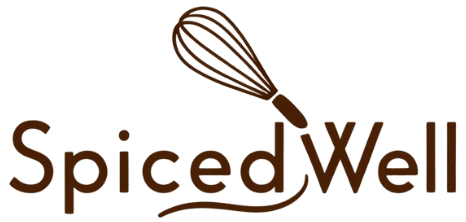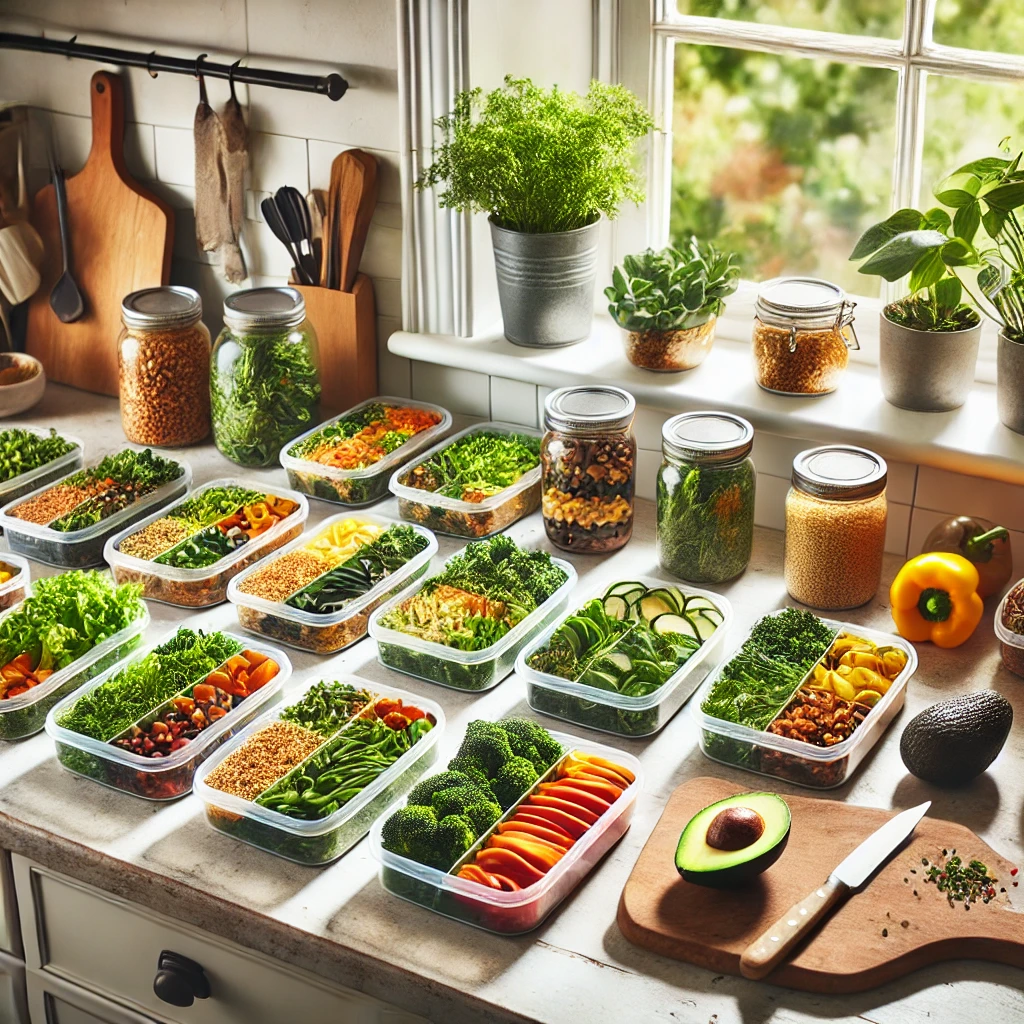Mastering Plant-Based Meal Prep for Busy Weeks
Mastering Plant Based Meal Prep Your Guide to Easy Healthy Eating
More people are learning about the benefits of eating plant-based foods than at any point in history. Social media posts about vegan and vegetarian meal prep have exploded in popularity, and plant-based recipes are being shared by both professional chefs and health enthusiasts alike. This trend isn’t just about food—it’s a movement toward a more sustainable lifestyle that’s as good for the planet as it is for your health.
In this comprehensive guide, we’ll explore how you can master plant-based meal prep to simplify your meals, boost your health, and reduce your carbon footprint. Whether you’re a seasoned vegan or just curious about incorporating more plants into your diet, this post is designed to provide you with everything you need to succeed.
Introduction to Plant Based Meal Prep
Plant-based meal prep involves planning, preparing, and organizing meals that are centered around fruits, vegetables, grains, nuts, and seeds. It’s a versatile approach that doesn’t necessarily mean you have to be strictly vegan or vegetarian. Instead, it’s about making conscious choices to prioritize plants in your cuisine.
Health experts rave about the benefits of a plant-based diet, which can include improved heart health, better digestion, and reduced risk of chronic diseases. Additionally, plant-based eating can have significant environmental benefits, as it generally requires fewer resources and produces less pollution than diets focused on animal products.
By integrating plant-based meal prep into your routine, you not only save time and money but also contribute positively to your well-being and the planet.
Essential Ingredients for Plant-Based Meal Prep
A successful plant-based kitchen is stocked with a diverse range of ingredients that provide nutritional variety and flavor. Here are some staples to include in your pantry and fridge:
Whole Grains
Quinoa, brown rice, oats, and barley are nutrient-dense grains that are versatile and satisfying. They can be used in salads, as bases for bowls, or as side dishes.
Legumes
Beans, lentils, and chickpeas are excellent sources of plant-based protein and fiber. They’re great for stews, soups, and curries, or as protein-packed additions to salads.
Vegetables
Leafy greens like spinach and kale, colorful vegetables like bell peppers and carrots, and cruciferous veggies like broccoli and cauliflower are key components. They add not just taste, but also essential vitamins and minerals.
Plant-Based Proteins
Tofu, tempeh, and seitan offer hearty textures and can be marinated or seasoned to fit any dish. These proteins are versatile and can be grilled, stir-fried, or baked.
Having these key ingredients on hand ensures you can whip up nutritious meals without much hassle, making your plant-based meal prep stress-free and rewarding.
Planning Your Plant-Based Meals
Effective meal prep starts with a solid plan. Here’s how you can prepare a week’s worth of delicious plant-based meals with ease:
Create a Shopping List
Begin by deciding which meals you’d like to prepare for the week. Look for recipes that align with your taste preferences and nutritional goals. Once you’ve picked your recipes, list out all the ingredients you’ll need and check your pantry to avoid duplicates.
Organize Your Meal Prep Schedule
Choose a day to dedicate a few hours to meal prepping. Sunday is often ideal for many as it kicks off the week. Batch-cook items like grains and legumes, and wash and chop vegetables in advance. Consider what meals you’ll need for breakfast, lunch, and dinner, and plan accordingly.
Balance and Variety
Ensure your meals are nutritionally balanced by including a variety of colors and food groups. This ensures you get a broad spectrum of nutrients and keeps your meals interesting.
By planning ahead, you eliminate the daily stress of deciding what to eat and make healthy choices more accessible within your busy schedule.
Cooking and Storage Tips
Once you’ve got your ingredients, it’s important to cook and store them correctly to preserve their taste and nutritional value:
Batch Cooking
Cook large quantities of staples like grains, beans, and roasted vegetables. They can be mixed and matched throughout the week to create different meals.
Proper Storage
Use airtight containers to keep your prepared items fresh. Glass containers are great for visibility and durability, while BPA-free plastic options are lightweight and convenient.
Label and Date
Mark your containers with the contents and the date so you can keep track of freshness. This also helps in minimizing waste by using the oldest items first.
By following these tips, you’ll ensure your meals remain tasty and nutritious from prep day to the end of the week.
Sample Plant-Based Meal Prep Menu
Here’s a sample menu to inspire your plant-based meal prep efforts. Each meal is packed with flavor and nutrition:
Breakfast
- Overnight Oats with almond milk, chia seeds, and fresh berries
- Tofu Scramble with spinach, bell peppers, and nutritional yeast
Lunch
- Chickpea Salad Sandwiches with avocado and mixed greens
- Quinoa Bowls with black beans, roasted sweet potatoes, and lime dressing
Dinner
- Lentil Stew with carrots, celery, and tomatoes, paired with whole-grain bread
- Stir-fried Tofu and Broccoli over brown rice, topped with sesame seeds
Each recipe comes with detailed preparation instructions and nutritional information, ensuring you know exactly what you’re getting from each delicious meal.
Making Plant-Based Meal Prep Sustainable
Sustainability is at the heart of the plant-based movement. Here’s how you can keep your meal prep eco-friendly:
Reduce Plastic Use
Opt for reusable produce bags and jars. Buy in bulk to cut down on packaging waste and choose fresh produce over pre-packaged items when possible.
Buy Local
Support local farmers and reduce your carbon footprint by purchasing seasonal produce from nearby markets. This ensures freshness and boosts the local economy.
Compost Scraps
Use a compost bin for vegetable scraps to minimize waste. Composting enriches the soil and is a natural way to recycle organic material, benefiting your garden and the environment.
These simple steps not only make your meal prep more sustainable but also instill a greater sense of responsibility towards the environment.
Benefits of Plant-Based Meal Prep
Choosing to meal prep with plant-based ingredients offers numerous benefits beyond just eating healthily:
Health Benefits
A diet rich in plant foods is linked to lower cholesterol levels, reduced blood pressure, and better weight management. Plant-based meals are nutrient-dense and lower in saturated fats compared to animal-based foods.
Financial Savings
Meal prepping reduces the temptation to dine out, saving money. Buying ingredients in bulk and cooking at home can significantly cut grocery bills.
Environmental Impact
Plant-based meal prep reduces reliance on meat and dairy, lowering your personal carbon emissions. It’s a practical way to contribute to a healthier planet.
With these advantages, it’s clear that plant-based meal prep is beneficial for you and the world around you.
Conclusion
Adopting a plant-based diet has been shown to have numerous health benefits, including improved heart health, better weight management, and reduced risk of chronic diseases. According to Harvard’s School of Public Health, plant-based diets are rich in essential nutrients and may reduce the risk of various diseases. Furthermore, Mayo Clinic notes that incorporating more plant-based meals into your routine can enhance overall wellness.
Plant-based meal prep is more than just a trend—it’s a lifestyle choice that can bring numerous benefits to your health, wallet, and the planet. By incorporating more plant-based meals into your routine, you take a significant step towards sustainable living.
We encourage you to share your own experiences and tips for plant-based meal prep in the comments below. Join our newsletter for more insights and exclusive recipes, and start your own meal prep challenge with friends and family today!
Together, let’s make every meal a celebration of health and sustainability. Happy prepping!








